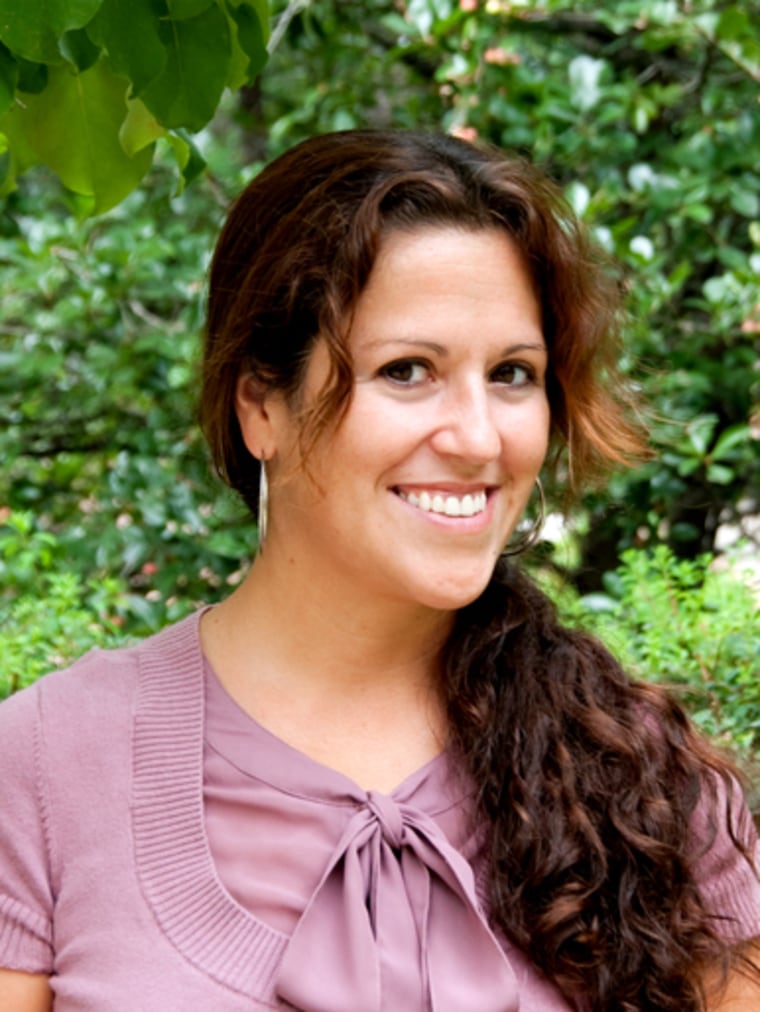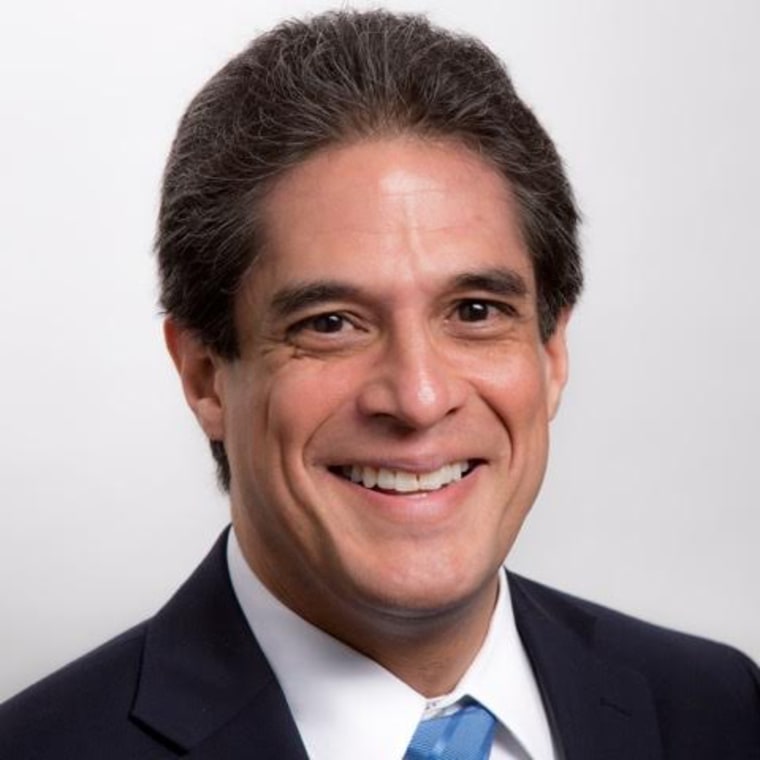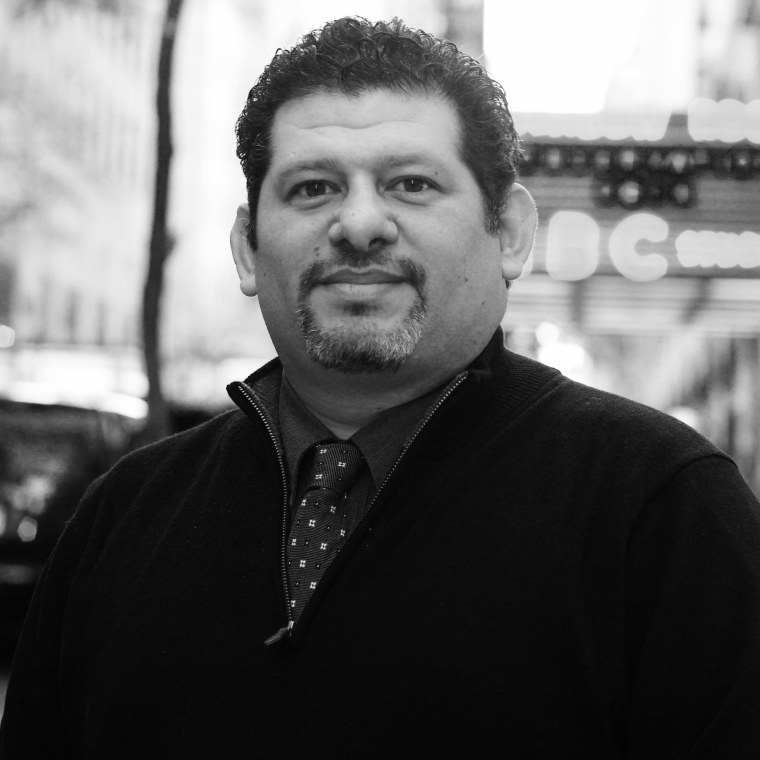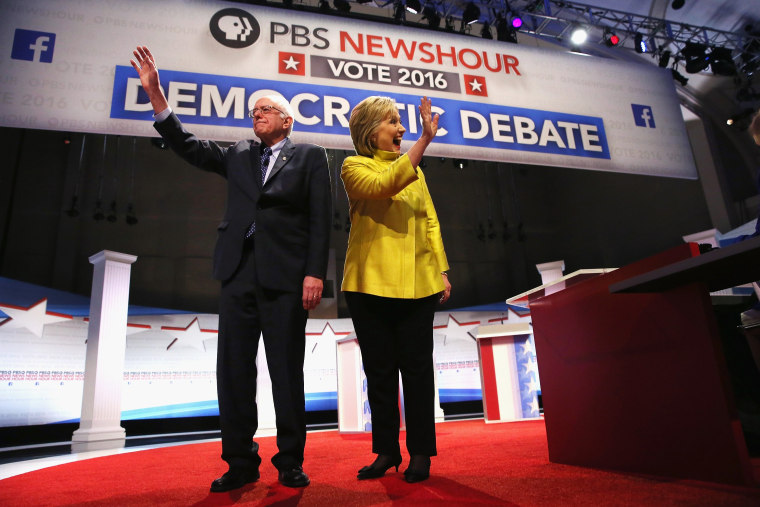Who scored points, who had some disappointing moments, and did the Democrat candidates make a good case to prospective Latino voters? With only two candidates for the Democrats, the discussions have been spirited and feisty, and long and clear on issues of policy and vision. Our panel breaks down the war of wars at the sixth Democratic debate on Thursday night.
The Choice for Democrats is Revolution or Reform

While the differences between both parties are larger than those within them, tonight’s debate did a good job illustrating the choice between Democratic candidates Bernie Sanders and Hillary Clinton, particularly in regard to how they approach change. Bernie shouts for revolution and Hillary articulates reform. Bernie uses the rally cries of contemporary social movements and Hillary lays out detailed policy platforms. Bernie calls on us to dream of a better world and Hillary reminds us we have to live in the world we’re in. It should not be surprising then that age is proving one of the most significant gaps among the two candidates’ supporters.
In sharp contrast to the Republican debates, this debate tackled institutional racism. In response to a question about Wisconsin’s shockingly high record on the mass incarceration on African Americans, Bernie emphasized criminal justice reform that includes the end of mandatory sentences, the demilitarization and diversification of police forces, and education and job training as a part of combating recidivism (when a former prisoner commits another crime and returns to prison). Clinton added the need to expand anti-racism efforts in education, employment, and housing. Next month’s debate in Flint promises an important continuation of this discussion.
One of the more heated moments of the debate was on immigration. While both agree on a more humane policy that keeps families together and pushes for a path towards citizenship, they called each other out on past votes and positions. Clinton scolded Sanders on voting against immigration reform and Sanders called out Clinton for supporting the deportation of young Central American refugees. Both tried to reframe their past actions, Sanders citing critiques of the guest worker provisions by progressive politicians and organizations, Clinton arguing the need to dissuade others from undertaking the dangerous journey. While both offered valid arguments, the sincerity was questionable. Regardless, both still offer better prospects than their Republican colleagues.
As usual, Sanders was at his strongest when talking about income inequality and taking on Wall Street. Clinton is getting better in addressing the former, highlighting the intersections of class with gender and race, but she struggles in interchanges with Sanders on the latter. Clinton dominated the discussion on foreign policy. This will be an asset to her if she makes it to the general election, but the question is whether or not Democratic voters care enough about national security for it to matter in the primary.
In general, the tone of this debate was less heated than the last. Both attempted a few quick and dirty jabs, Bernie more effectively, perhaps because he is quicker to call foul on Hillary. Neither is well served by this tactic and would do better to save barbs for the Republicans. The price of a dirty primary fight could be paid in November. The two share much in terms of ultimate goals and values. Which approach will inspire more people to the polls, however, remains the most important question in this race.
Celeste Montoya is an Associate Professor in the Department of Women & Gender Studies at the University of Colorado Boulder.
Attention Turns to African Americans and Latinos

We’re not in New Hampshire anymore. With the Nevada caucuses and South Carolina’s primary coming up, the two candidates for the Democratic nomination went out of their way to cite concerns of interest to Latino and African American voters at last night’s debate. Consider that in her opening statement, Hillary Clinton mentioned African-American voters, immigrants, and women, and she was also the first to praise President Obama. Bernie Sanders, for his part, won the race to bring up the water crisis in Flint, Michigan.
Clinton and Sanders provided an interesting case study in the best attributes for a successful candidate; each of them lacks what the other has. Clinton has the cool composure of someone who has been on the national stage for decades, while Sanders has an irrepressible authenticity.
Clinton’s theme tonight seemed to be “let’s get real,” as she repeatedly questioned Sanders on how he would pay for his policy ideas, noting several times that “the math doesn’t add up.” She made the good point that some of Sanders’ proposals depend on contributions from state governors, which are unlikely to happen in Republican states. She also shrewdly name-checked Dondre Hamilton, a mentally ill African-American man who was killed by Milwaukee police, and deftly pushed aside a question about Madeline Albright’s controversial comment on women who do not support other women.
Clinton was the winner tonight, because she managed to remain unflappable, no matter the question – and the PBS moderators had solid queries for both candidates. If only such questions could be asked at the GOP debates.
Sanders, in contrast, appeared most comfortable when delivering some version of his stump speech, and pivoted several times back to his signature issue of income inequality. He was visibly irritated with Clinton at times, which is not a presidential look; he needs to learn to adjust his trademark passion, because it can come dangerously close to appearing curmudgeonly. Strangely enough, Sanders was similar to Donald Trump in that, occasionally, his answers amounted to: Things are really messed up right now, so elect me, I’ll fix it, and tell you how later.
The shade award of the night goes to Sanders who, in response to Clinton saying, “When I’m in the White House…” shot back: “Secretary Clinton, you’re not in the White House yet.” Social media noticed this burn. Or should that be “Bern?”
It was refreshing to hear both candidates competing to say who would do more to end systemic racism in the criminal justice system, to get more Americans health care, and to do more for undocumented immigrants. Sanders put Clinton in the defensive over her comments about sending Central American child migrants back to their home countries, while Clinton scored with a pointed reminder to viewers that Sanders voted against immigration reform in 2007.
Things were genteel and subdued, very PBS-like, until the final fifteen minutes. Then, Clinton turned an otherwise softball question about which leaders she considered influential to call out Sanders for what she called his disloyalty and unfair criticism of President Obama. “Madam Secretary, that is a low blow!” Sanders exclaimed. He was right – but Clinton succeeded in rattling him in the final moments of the evening.
Still, if it’s any consolation to Sanders, there is the distinct possibility that this debate might not have attracted the record ratings of earlier ones. Most Americans were probably watching "Scandal."
Raul Reyes is an NBC Latino contributor, attorney, journalist and TV commentator.
The Candidates are Clear, but the Voters are Not

Bernie offers transformation, while Hillary offers transition.
In many ways, Bernie offers the same platter that the President did - the promise for transformational change in the way government does business, but the context is obviously different. Obama was a young African American who was a talented community organizer and constitutional law professor at the University of Chicago, while Sanders is a grizzled veteran who spent his career as a politician trying to hold the system accountable.
Sanders is no Obama, and for that the populist rhetoric loses some of its punch.
The trick question is whether Sanders will be as effective outside of the Senate as he was inside the Senate. That is if Sanders cannot influence the Senate to his will as a Senator, I wonder what makes his voters think he can do so in a system specifically designed to emphasize conflict between the branches of government. In this the debates have also been clear. We don't know how.
The one chance Sanders had to tout a voting record on immigration, he simply failed. Clinton pointed out that Sanders did not support the 2007 comprehensive reform package when he had a chance to. Sander's response was an ironic excuse that the labor unions, with an impressive lobbying group of their own, urged him not to. Sanders also mentioned that the Hispanic organization, League of Latin American Citizens (LULAC), urged him not to sign the package. However, the President of LULAC, Brent Wilkes, said back then that the groups thought a better deal would come from a Democratic controlled Congress.
The Clinton campaign reminds me of a steady desert flash flood (yes, I'm from Arizona). It comes upon you and despite your efforts, swallows you and everything else up in its path. While Sanders has been impressive in his ability to seek out representatives of past injustices, such as Erica Garner, Hillary Clinton has responded with support from the institutions of government that are set up to represent the very people Bernie is fighting for, such as the Congressional Black Caucus (CBC). Bernie received an endorsement from popular public intellectuals, such as Ta-Nehisi Coates, Michelle Alexander and Cornell West, while CBC members form a fire line around Clinton.
Bernie has gathered an impressive collection of DREAMers to support him, but Hillary has a DREAMer of her own punching for her, plus the endorsement of the Chair of the Congressional Hispanic Caucus, Linda Sanchez. I wonder when the endorsement from the Hispanic Caucus will arrive.
Finally, the most telling moment for me was when Sanders touted his "A" grade rating for his record on reproductive choice for women. Clinton's response was to tout her endorsement of the organization grading Sander's performance - Planned Parenthood.
On issue after issue that Bernie supporters claim to matter to them, Hillary can point to an entrenched record and support, for good and bad. Indeed, Hillary made clear, "I am not a single issue candidate, this is not a single-issue country". Sanders is the shiny distraction some Democrats can't seem to take their eyes off off.
While Sanders certainly gets an "A" for effort, Clinton continues to remind Democrats that she has achieved far greater heights than any other woman in government. Indeed, you will be hard pressed to find a man who has run for president with the same experience across the board in government as Hillary Clinton has (Lyndon Johnson comes to mind). That we are still here illustrates the deep frustration of the electorate, and the past failures of government to deliver on a better outlook for the future to our youngest generation.
It has been abundantly clear for a while now what both candidate brings to the table, but it will be another week or two before the voters become clearer on which they prefer.
Stephen Nuño is an Associate Professor in the Department of Politics and International Affairs at Northern Arizona University and a Contributor for NBCLatino.
